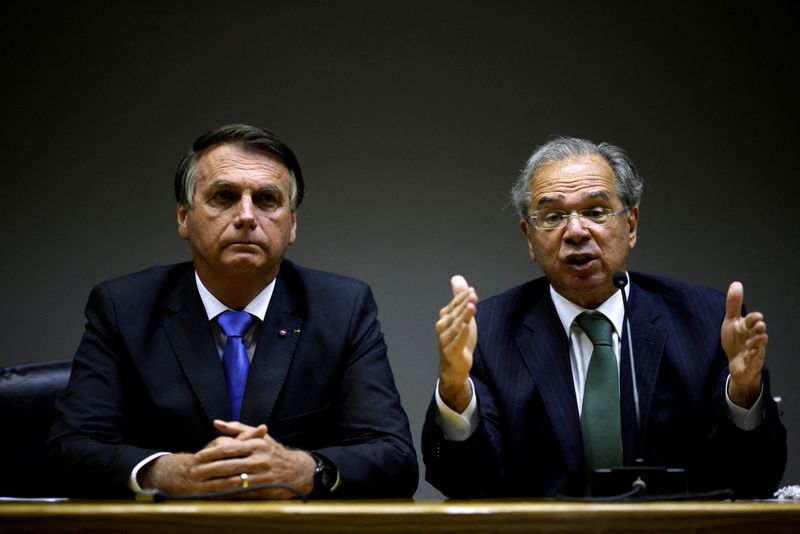By Carolina Pulice
(Reuters) - Brazilian President Jair Bolsonaro's government has arranged more than 35 privatizations during its time in office. However, political pressures and lack of support from citizens and Congress have forced it to back down on its promises.
Here are some key facts:
INITIAL PLANS
In April 2020, Privatization Secretary Salim Mattar announced plans to sell 17 companies, including state telecommunications operator Telebras, the Casa da Moeda mint, the postal service Correios and federal data processors Dataprev and Serpro. Another 20 companies -- including Eletrobras, Latin America's largest utility; Infraero, the agency that manages Brazil's airports; agricultural research company Embrapa; and crop supply agency Conab -- could be put up for sale, he said.
PRIVATIZATION AGENDA
So far, only major companies that belonged to Petrobras have been privatized. State-owned Petroleo Brasileiro SA, as it is formally known, sold an initial stake in its fuel distribution arm BR Distribuidora, via a share offering in mid-2019. Petrobras divested its remaining 37.5% stake in the company, now called Vibra Energia, in June for more than 11.3 billion reais ($2 billion). Petrobras also sold its liquefied petroleum gas unit Liquigas in December 2020 and natural gas assets Transportadora Associada de Gas(TAG)in July of that year.
Eletrobras is also in line to be privatized. However, the process has been set back by delays at the General Accounting Office, which postponed its analysis on Wednesday of the sale formula to dilute the state's stake by floating shares. This approval now may not happen until next year.
Seven auctions of federal companies were expected in the second semester of this year. Some, however, were postponed until next year, such as the port of Vitoria and Minas Gerais food supply center Ceasaminas.
Last week, the government decided to exclude the Casa da Moeda mint from the privatization list. According to the Economy Ministry, there were "restrictions" on going into partnership with the private sector to issue things like money and stamps.
WHAT IS AT STAKE?
Although he came into office promising to be a big advocate for state asset sales, Bolsonaro -- who is up for re-election next year -- himself has emerged as a roadblock to parts of the privatization program. The president has personally vetoed some of the sales, such as those of the mint and Sao Paulo food supply center Ceagesp.
The expected privatization of the postal service will not happen this year, either. O Globo newspaper said the government was unable to find enough support in Congress to proceed with the sale of Correios in 2021.At the same time, Bolsonaro has tried to show some interest in his government's free market agenda. Last April, he celebrated the privatization of Rio de Janeiro’s state sanitation company Cedae, which raised 22.7 billion reais, saying it was a history-making moment for Brazil, its economy and its markets.
The president has also touted the idea of privatizing Petrobras, Brazil's largest company. Last month, he said such a move was an option to control fuel price increases. But on Tuesday, Economy Minister Paulo Guedes said privatizing Petrobras was not in the government's plans, at least not in its "first mandate."

The ministry did not immediately respond to a request for comment.
($1 = 5.6182 reais)